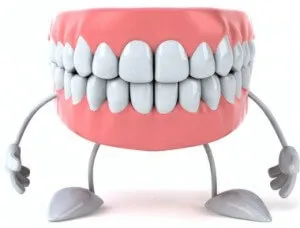It has already been noted that Americans eat very fast. Do you often rush through meals, giving very little thought to what you are eating? Do you chew your food or swallow it in one big gulp?
All the healthy food you can eat will have limited value if you don’t chew it. The 19th century health guru Horace Fletcher said, “nature will castigate those who don’t masticate.” Chewing is necessary to set off a chain reaction that is essential to proper digestion and the breakdown of food. It also has some other health benefits.
The British prime minister William Gladstone recommended chewing each bite 32 times – once for each tooth. Horace Fletcher further said that each mouthful should be chewed until it became liquid, and then swallowed. Mahatma Gandhi said, “you should eat your drinks and drink your food.”
Concentration camp survivor Antonio Stanchich claimed to have survived a Nazi camp by “chewing” his cold water – this he said warmed him up. He said that it gave him more energy – he then tried chewing his food for longer. He found that 150 chews was the magical number to give him the most energy. The life-saving chewing methods of Stanchich are outlined in his son Lino’s book, Power Eating Program: You Are How You Eat.
When Does Digestion Start?
Digestion starts before we actually take a bite of food. It is healthy to take some time to focus on the food before we put it in our mouths. In today’s hurried society, this is often neglected. Commonalities between cultures in the world who experience longevity include the time that they take to prepare and eat a meal. All elements of nourishing the body are extremely mindful.
How to Eat Mindfully
Start by breathing in the aroma of your food, giving the brain time to register it. This will trigger digestive juices, hormones and enzymes to start working. Once you take a bite, take the time to chew it completely. Chewing slowly and methodically helps increase saliva, which contains enzymes needed to break down carbohydrates. Saliva also contains antibacterial properties.

Once the food begins to be broken down, the stomach starts to produce hydrochloric acid and this, in turn, sends a message further down the digestive tract to get ready to work. Chewing also helps the stomach send a “full” message to the brain so that you do not overeat.
It is suspected that members of the younger generation have low stomach acid because they hurry through their meals and do not chew each bite long enough. If food, especially animal protein, is not adequately broken down, it encourages bacteria to grow in the digestive tract, which can create toxic by-products.
Chewing is Exercise
Chewing is also excellent exercise for the jawbone and helps to encourage healthy circulation of blood to the area, which brings nutrients and oxygen to the muscles and the brain. It is necessary to relax while you eat, chewing will be easier this way. Sit down – don’t stand – for your meal, and don’t rush.
Try to avoid eating while in front of your computer or while driving. Managing stress will also help the digestive juices do their job. After you have finished eating, stay seated for 15 minutes – this aids digestion. Focus on regular breathing and the sensation that you are full and happy.
Aim for chewing each bite at least 20 times before you swallow – your digestive tract will thank you!
-The Alternative Daily
Sources:
http://www.whfoods.com/genpage.php?tname=george&dbid=36
